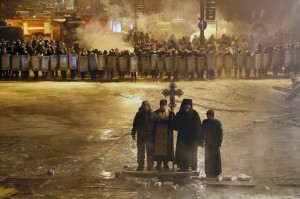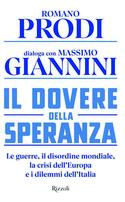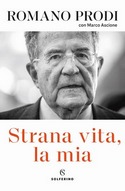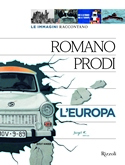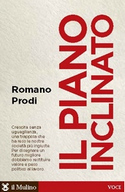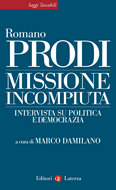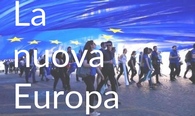Europa e Russia si riuniscano e trovino immediatamente una soluzione per fermare il bagno di sangue in Ucraina
Articolo di Romano Prodi su The New York Times del 20 febbraio 2014 (in inglese)
ROME — Ukraine is in the middle of a violent political crisis. Dozens of people died this week and hundreds more were injured as protesters fought police in the capital, Kiev. Lethal violence has been spreading to the rest of the country, and a truce announced early Thursday fell apart as the death toll kept growing.
What began in November as a series of peaceful protests in favor of closer ties with the European Union and greater autonomy from the influence of Russia has escalated into a conflagration.
To save Ukraine, the government and opposition alike must make the difficult but necessary choice to compromise and reconcile. European leaders should immediately schedule direct talks with President Vladimir V. Putin of Russia and his top officials to find a temporary solution to stop the bloodshed and a longer-term plan that would allow Ukrainians to determine their political destiny in a peaceful and democratic fashion.
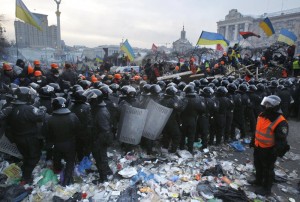 But the West must make clear to Moscow that Ukraine — a bridge between East and West — should not be the object of geopolitical games. European leaders should back down from their threats of sanctions against Ukraine and its embattled president, Viktor F. Yanukovych, which would only prolong the suffering of the Ukrainian people. But Russian interference in Ukraine’s internal affairs must not be tolerated.
But the West must make clear to Moscow that Ukraine — a bridge between East and West — should not be the object of geopolitical games. European leaders should back down from their threats of sanctions against Ukraine and its embattled president, Viktor F. Yanukovych, which would only prolong the suffering of the Ukrainian people. But Russian interference in Ukraine’s internal affairs must not be tolerated.
Only a few weeks ago, there were signs of progress in Ukraine, with the government offering concessions to the protesters while working to restore order. Mr. Yanukovych’s government passed an amnesty law, released detained protesters and introduced legislation to amend the Constitution to place greater power with the Parliament. Protesters began to vacate government buildings, and the country seemed to be stepping back from the brink.
But now the demonstrations have taken a new, dangerous turn. Reversing the previous progress, radical agents began to attack police, start fires, seize buildings and create an environment of destruction.
There can be no forgiveness or leniency for those who provoke violence and the loss of human life, whether they are street thugs or misguided nationalists.
Many or even most of the protesters are sincere and want a peaceful Ukraine that is stable and democratic.
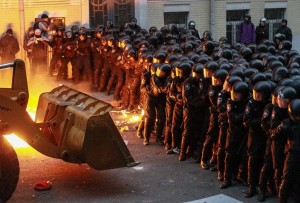 But there is also a violent faction, which is occupying government buildings and attacking police officers with guns and explosives. It includes far-right nationalist groups like Right Sector, a new extremist movement, and Svoboda, an openly anti-Semitic group that is now the country’s third-largest opposition party. (The party, which first won seats in Parliament in 2012, had a paramilitary wing until it was disbanded in 2004.)
But there is also a violent faction, which is occupying government buildings and attacking police officers with guns and explosives. It includes far-right nationalist groups like Right Sector, a new extremist movement, and Svoboda, an openly anti-Semitic group that is now the country’s third-largest opposition party. (The party, which first won seats in Parliament in 2012, had a paramilitary wing until it was disbanded in 2004.)
While legitimate dissent is essential to democracy, violent attacks have no place in political dialogue. The leaders of Ukraine’s opposition movement and the peaceful protesters in Independence Square should forcefully and unequivocally repudiate these violent extremists and their tactics. The radicals should be brought to justice.
But restoring peace will also require calm moderation from Mr. Yanukovych’s government, which must be ready to stand down once order is restored, so that the country can start to heal. Last month, he offered the jobs of prime minister and deputy prime minister to leaders of the opposition — who refused, demanding new presidential elections. On Wednesday, the president dismissed the head of the armed forces, Russia condemned the violence as an “attempted coup,” and European Union leaders prepared to meet in Brussels to discuss potential sanctions.
Mr. Yanukovych must extend an olive branch, and the opposition must try to meet him halfway, so that a new bipartisan government can be formed to restore order and manage the country’s troubled economy. Then protesters should remove their barricades and go home.
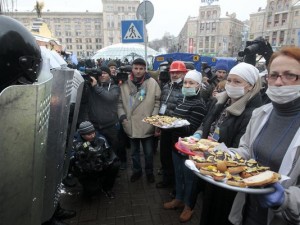 The government has met many of the demands outlined by the protesters and their message has been heard loud and clear; this is democracy at its best. European leaders must encourage this progress and avoid the appearance of interference, which would encourage only more division.
The government has met many of the demands outlined by the protesters and their message has been heard loud and clear; this is democracy at its best. European leaders must encourage this progress and avoid the appearance of interference, which would encourage only more division.
Some in the European Union have lost sight of the basic truth that we need Ukraine as much as Ukraine needs us. We need to rebuild trust and restart the movement toward integrating Ukraine into the rest of Europe.
As president of the European Commission a decade ago, I oversaw the largest single enlargement of the European Union in its history, with the inclusion of seven former members of the East Bloc.
Europe needs Ukraine as a bridge to Russia more than ever. In recent days, talks between the two sides have only yielded bad faith. Mistrust has steadily grown: Moscow views Europe’s diplomacy as empire-building in all but name, while Brussels sees a jealous Russia determined to recreate an imperial past.
Ukraine, this fragile and vital bridge, is in danger of collapsing. To threaten sanctions, to condone violent extremists in the streets and to ignore Ukraine’s financial troubles — as some European leaders seem to be doing — would be to hasten the destruction of the bridge. Instead, we should be supporting and repairing it.
Europe should not accept interference by Russia in Ukraine’s affairs, but it also cannot stand by as the crisis in Kiev rages. The European Union should re-engage Mr. Putin and make clear that all parties have everything to lose, and nothing to gain, from further violence.

